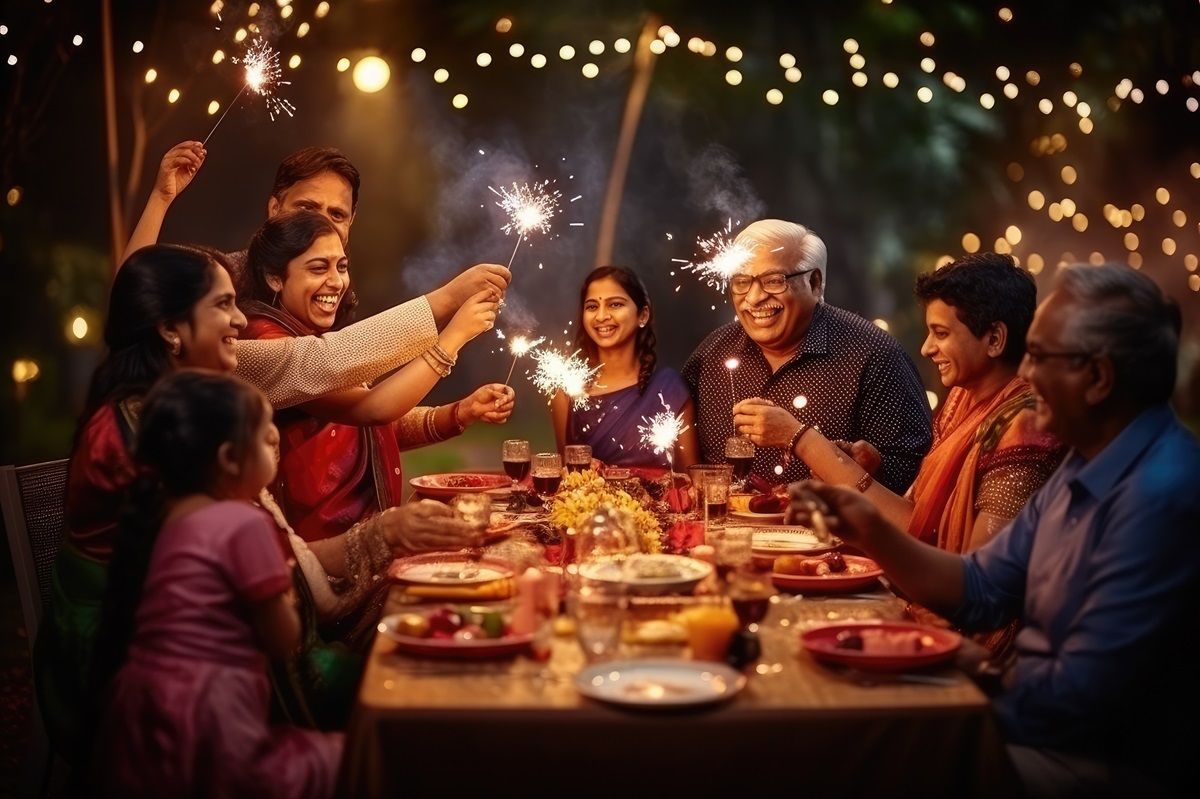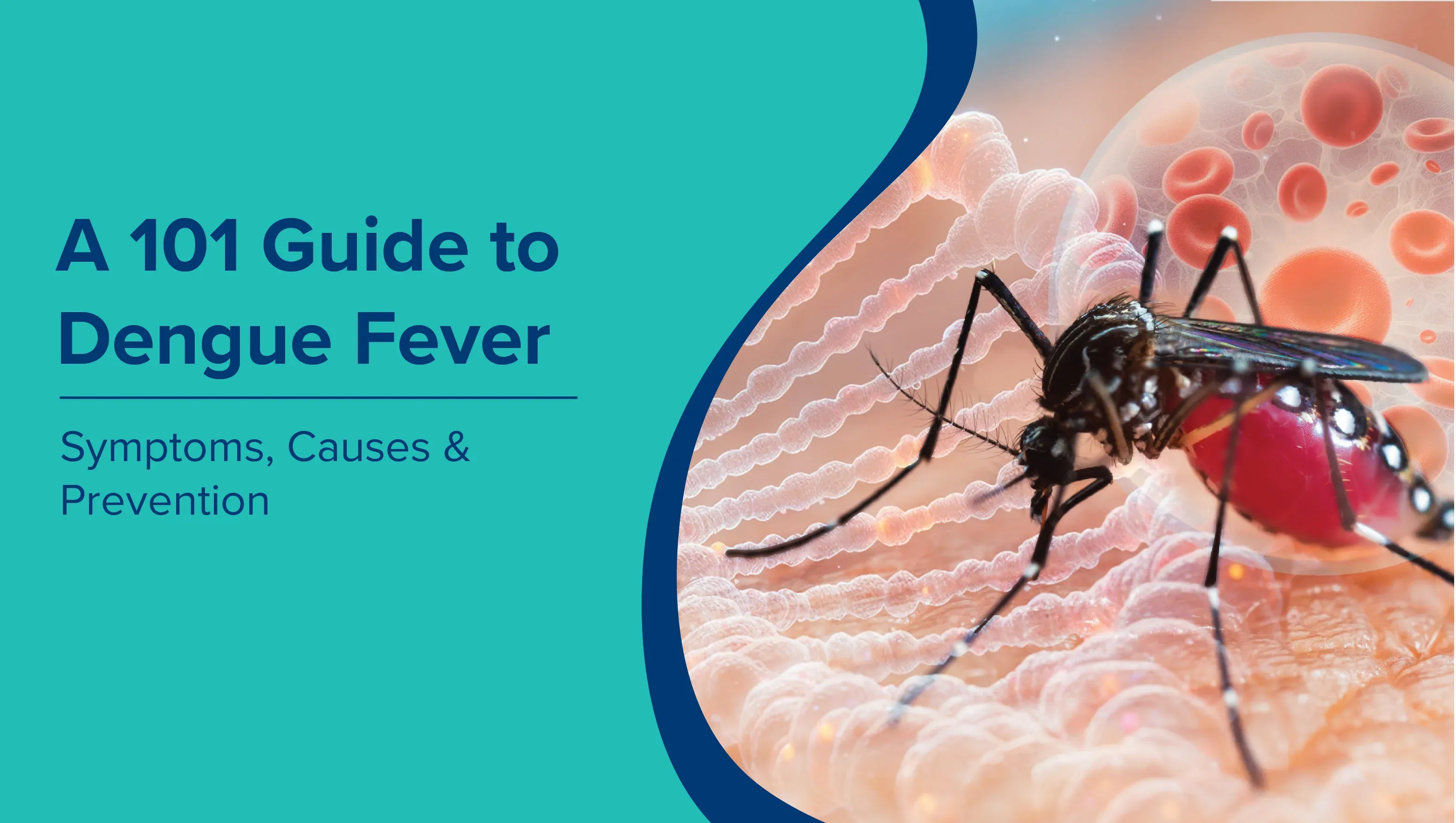Diwali is a time of joy, togetherness, and celebration, but the festival season can also bring certain health challenges. Increased exposure to air pollution, loud fireworks, rich festive foods, and disrupted daily routines can impact overall well-being. With a few mindful adjustments, you and your family can create a festive environment that is safe, comfortable, and health-conscious. In this article, we share practical health tips and lab tests to help you stay well during the Diwali festivities.
Understanding Health Challenges During Diwali
While Diwali brings warmth and joy, the festive environment—often filled with smoke, noise, and rich foods—can affect immunity, digestion, and respiratory health. Some common challenges include:
- Air pollution and smoke from firecrackers, which can trigger respiratory issues or aggravate existing conditions.
- Loud noises and continuous celebrations, potentially causing stress, headaches, or sleep disruption.
- Crowded gatherings, increasing the risk of seasonal illnesses or infections.
- Overindulgence in fried or sugary foods, which may lead to digestive issues or fluctuations in blood sugar levels.
Air Pollution and Respiratory Health: Protect Your Lungs
During Diwali, the rise in air pollution and smoke from fireworks can affect lung health and immunity. Fine particles like PM 2.5 can irritate the lungs and increase susceptibility to infections.
Precautions to stay safe:
- Avoid smoky environments and areas where firecrackers are used.
- Wear an N95 mask when stepping outdoors.
- Keep windows closed during high-pollution hours and use an air purifier indoors.
- Schedule outdoor activities during early mornings or afternoons when pollution levels are lower.
- Use indoor air-purifying plants such as peace lilies or areca palms.
Lab Tests to Monitor Respiratory Health:
- Lung Function Test (Spirometry) – Checks lung capacity and airflow.
- Oxygen Saturation Test (SpO2) – Monitors oxygen levels in the blood.
- Complete Blood Count (CBC) – Detects infections or inflammation.
Healthy Eating Habits During Diwali
Festive foods are a highlight of Diwali, but mindful eating ensures you enjoy the celebrations without compromising health.
Nutrition Tips:
- Opt for home-cooked meals prepared with minimal oil and spices.
- Limit fried, processed, and sugary foods.
- Include antioxidant-rich foods like fruits, vegetables, and nuts to support immunity.
- Stay hydrated with water, herbal teas, or soups.
- Avoid excessive alcohol or carbonated drinks.
Recommended Lab Tests for Nutritional Monitoring:
- Blood Sugar Test – Helps track sugar levels after festive indulgences.
- Lipid Profile Test – Monitors cholesterol and heart health.
- Vitamin D & B12 Tests – Check for deficiencies common during seasonal changes.
Managing Fatigue and Energy Levels
Festive celebrations can be physically and emotionally demanding. Maintaining energy levels is key to enjoying Diwali safely.
Tips to balance rest and celebration:
- Schedule short rest periods between social activities.
- Avoid late-night gatherings and limit exposure to noise or crowds.
- Engage in light activities like slow walks, stretching, or deep-breathing exercises.
- Maintain a regular sleep routine.
- Keep medications and medical equipment organised and accessible.
Lab Tests to Assess Overall Health:
- Thyroid Function Test – Helps identify fatigue-related hormonal issues.
- CBC and Iron Tests – Detect anemia or low energy levels.
- Kidney Function & Liver Function Tests – Monitor organ health and metabolic balance.
Fire Safety and Home Precautions
Diwali decorations and fireworks can pose risks if not managed carefully.
Safety Measures:
- Avoid open flames near curtains, wires, or electrical appliances.
- Prefer LED lights or electric lamps over candles and diyas.
- Keep a first-aid kit and fire extinguisher accessible.
- Ensure walkways are well-lit to prevent falls.
- Use air purifiers or HEPA filters to maintain clean indoor air.
Emotional Well-being: Celebrate Mindfully
Diwali is not just about lights and fireworks—it’s also about peace, gratitude, and family connections.
Tips for Emotional Health:
- Celebrate quietly through family rituals or calm indoor gatherings.
- Stay connected with loved ones virtually if needed.
- Engage in relaxing activities like meditation, music, or creative hobbies.
- Caregivers can support by creating a calm, inclusive environment.
When to Seek Medical Help During Diwali
Even minor discomforts can become serious if ignored. Seek medical attention if you experience:
- Difficulty breathing or chest tightness after exposure to smoke or pollution.
- High fever, persistent fatigue, or signs of infection.
- Unexplained pain, swelling, or dizziness.
- Severe digestive issues or sudden allergic reactions.
Key Takeaway
Diwali is a celebration of light, joy, and togetherness. Prioritising health and safety ensures that the festivities remain meaningful and enjoyable. With mindful precautions, balanced nutrition, regular rest, and timely blood tests, you can celebrate the festival while safeguarding your physical and emotional well-being. This Diwali, illuminate your home responsibly, nourish your body thoughtfully, and embrace the festival with vitality and gratitude.















